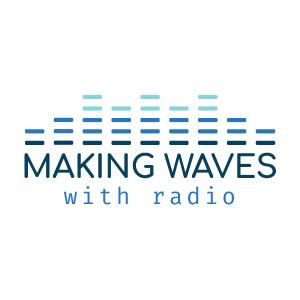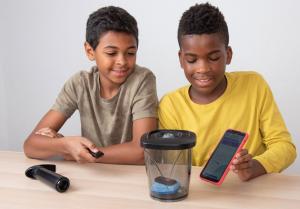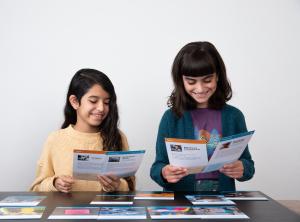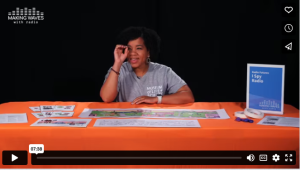Project overview

Wireless radio communications, such as Wi-Fi, transmit public and private data from one device to another, including cell phones, computers, medical equipment, satellites, space rockets, and air traffic control. Despite their critical role and prevalence, many people are unfamiliar with radio waves, how they are generated and interact with their surroundings, and why they are the basis of modern communication and navigation. Making Waves with Radio has created a series of hands-on activities and professional resources to assist educators in presenting these topics to diverse audiences.
What is Radio?
The Making Waves with Radio Content Training Video is a great resource to learn about the 5 Big Ideas for radio technologies. The video will review questions including: What are radio waves and how do manipulate them to communicate? How did radio communications start, and where has the technology taken us? How can we all take part in the development and use of radio technologies in the future?
There is also a Spanish version of the video available: https://vimeo.com/776686149
Making Waves with Radio resources from the NISE Network
NISE Network museum partners have created several hands-on activities for the Making Waves with Radio project. Each activity includes a training video and materials in Spanish. Two of the activities also use a mobile app to assist learners. This downloadable kit of hands-on activities will help learners explore the phenomena, uses, and societal impact of radio technologies.
-
Radio Silence — How does the radio signal sent from a station’s transmitter miles away get to your device? Which materials work best at blocking the radio waves? Learners explore interference and how radio waves can be blocked using different containers and wrapping materials.

-
Messages from Space — Are sound waves and radio waves different? Learners explore the differences between radio and sound waves by comparing the functions of a remote key finder inside a closed container with air and under a vacuum. To help track sound levels over time, the Sound Dectector app is available on Android devices. The Sound Detector app was created with a simple interface for easy use and includes English and Spanish.

-
Wi-Fi Detective — Why did I lose my Wi-Fi signal? Learners experiment with different materials to interact with the radio waves coming from a household Wi-Fi router. This activity uses the Wi-Fi Detector app on Android devices to measure the Wi-Fi signal strength over time. Learners can track the Wi-Fi signal through audio output as they place materials in between and around the Wi-Fi router. The Wi-Fi Detector app was created with a simple interface for easy use and includes English and Spanish.

-
You Decide — Learners are given both people and technology cards. Each technology card is marked with a symbol to indicate whether the featured radio technology represents near future possibility, far future possibility, or an idea way beyond current science. Cards are intended to inspire curiosity about the science of radio, increase thoughtfulness around the role of radio in our everyday lives, and spur imagination.

-
I Spy Radio — Young learners use challenge cards to find examples of radio technologies in Wavetown, a colorful large print illustration of radio devices present in our everyday lives. Numbers and a legend on the illustration provide facilitation support.


-
Online Workshop Recording: Making Waves with Radio - New Ways to Engage Audiences with the Basics of Modern Communication & Navigation

(recorded April 2023)
Learn more about the project and the activities
Project Partners
The project is led by BSCS Science Learning in Colorado Springs, CO
Project team members and advisors include:
- Children's Creativity Museum, San Francisco, CA
- Sciencenter, Ithaca, NY
- Museum of Life and Science, Durham, NC
- Emily Maletz Graphic Design, Portland, OR
- Swift Creek Media, Raleigh, NC
- Yellow Cow Consulting, San Francisco, CA
Acknowledgement:
This material is based upon work supported by the National Science Foundation under Grant Number DRL 2053160. Any opinions, findings, and conclusions or recommendations expressed in this material are those of the author(s) and do not necessarily reflect the view of the National Science Foundation.
